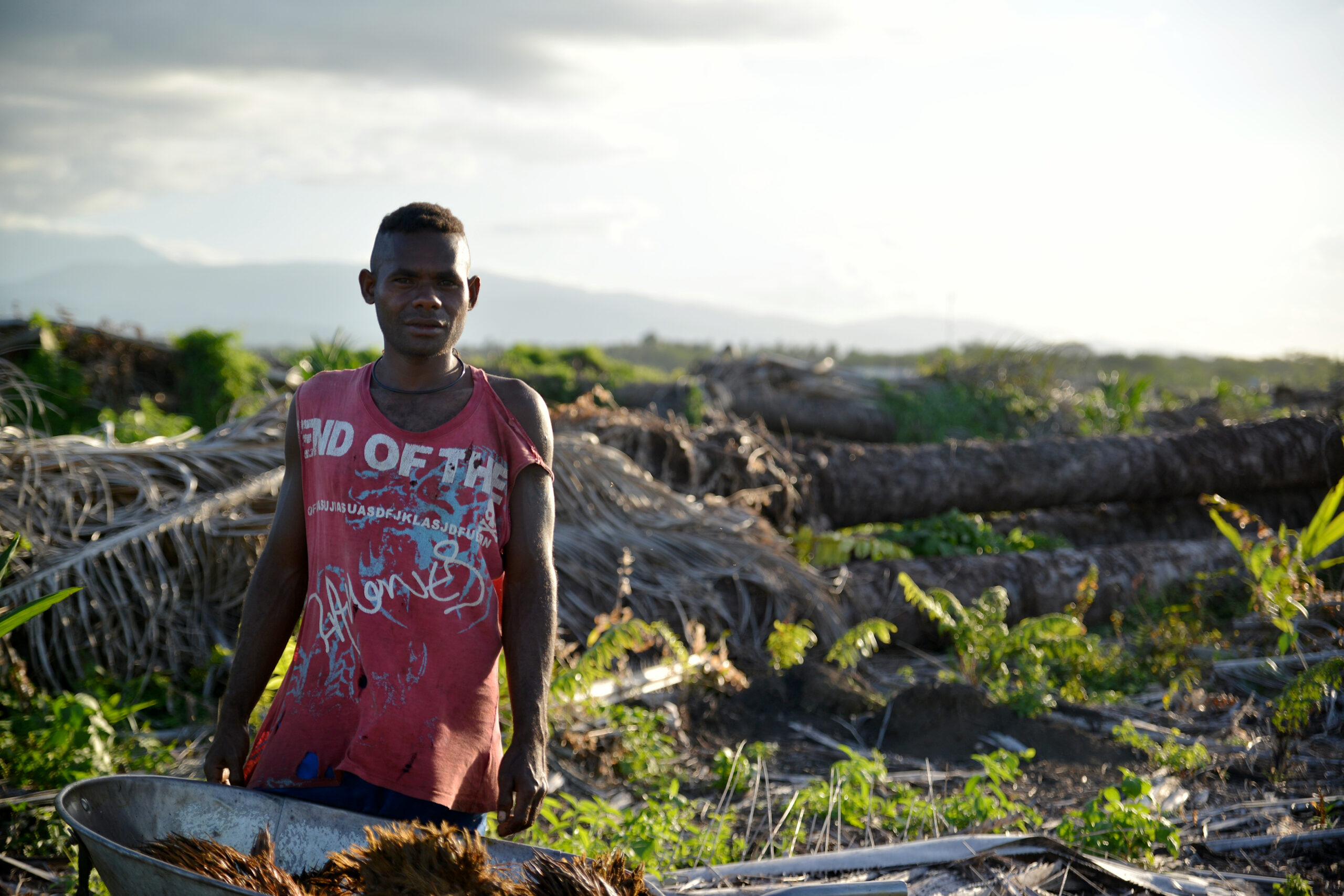Food versus fuel
January 31Biofuels are presented as a promising renewable energy source in Africa, says Erisa Sserwaddad, 23, a correspondent from Kampala, Uganda. He argues, however, that unmanaged production of biofuels in Africa could lead to a stark choice between food or fuel.
The burning of fossil fuels in order to power up economic growth has been identified as one of the major causes of climate change.
Resorting to alternative sustainable means of energy is one way to mitigate climate change, and biofuels are increasingly being considered a viable renewable energy source in East Africa.
Biofuels are liquids, gaseous, or solid fuels that are mostly produced through bio-renewable feedstocks (Demirbas, 2011a). They can be processed into liquid fuels for either transport or heating purposes.
Biofuels are produced from crops such as sugarcane, corn, beets, wheat, sorghum, rapeseed, sunflower, soya, palm, coconut or jatropha (a type of flowering plant that is heat and drought resistant).
Sustainable development has been defined as development that meets the needs of the present without compromising the ability of the future generations to meet their own needs (Brundtland Report, 1987). Is this definition accurate in assessing biofuels production in East Africa?
In theory, biofuels present some benefits such as job creation, reduction in the importation of fuel, an increase in exports, increased government revenue and reduced emission of greenhouse gases from fossil fuels. However, this is not the reality on the ground.
East Africa continues to experience developmental challenges including high youth unemployment, poverty, food insecurity, bad governance and corruption, poor infrastructure, lack of skilled labour, poor institutions and low levels of technology, among others.
The promotion of biofuels projects in such an environment could present more dilemmas than the prophesied benefits, compromising livelihoods in the region.
With biofuels would come increased pressure on the ecological integrity of tropical forests, water resources, marginal lands and fertile soils. This would take away control of resources from subsistence farmers, indigenous peoples and people with insecure land rights.
In turn, this would increase the hardship of the poorest and most vulnerable, further undermining the sustainable development pillars of social, economic and environmental sustainability.
In Tanzania, more than 20 investors have requested land for biofuels production, and over 650,000 hectares has been allocated for biofuels.
In addition, 1,000 farmers in the Wami Basin, a rice-growing area, currently face displacement to make way for a Swedish investor looking to produce over 400,000 hectares of sugarcane (Oxfam, 2008).
In Uganda, Kakira Sugar has commissioned a $36.6 million ethanol plant to produce 20 million litres of ethanol annually from 74,000 metric tons of molasses (Biofuels Digest, Jan. 2017).
In Kenya, more than 10 biofuels investments have been launched (BirdLife International, 2012).
What is increasingly becoming clear is that local poor people may have no place in the supply chain other than their displacement. This would push them into marginal lands that are further targets of second-generation biofuel feedstocks – palm, jatropha and other drought resistant crops.
Because most of the biofuels investors are foreign companies, their primary aim is to supply foreign markets. Therefore, local markets may derive very little benefit from biofuels production.
Additionally, an unfair international trade system would mean low prices for local farmers. The scale of these projects would force developing countries to offer large tracts of land and tropical rainforests and sacrifice food crops in a bid to service biofuels demand by developed countries.
Land plays a crucial role in the livelihoods of Africans. Therefore, food security and poverty alleviation can only be achieved if land use is prioritised to cater for people’s needs.
Failing this, biofuel production would deepen poverty, especially among poor local farmers, and compromise the sustainable development of these communities.
In addition, biofuels may produce impacts such as food shortages and consequent high food prices and displacement of poor vulnerable people. It may also lead to deforestation and loss of biodiversity, pollution, land-grabbing and increased carbon emissions, among others.
In view of this, East African countries need to pay keen attention to other sustainable pathways to development.
All biofuels projects must be subjected to rigorous environmental, social and economic impact assessments. Additionally, more resources should be committed to research on biofuels before hastily promoting this as a viable alternative energy source.
Above all, strong institutions and legal frameworks should be constructed, integrity should be practiced, and the interests of the local people should be safeguarded.
Photo credit: John Henry
———————————————————————————————————————–
About me
I am a Social Worker, at Communication for Health Uganda, aspiring to improve on health of the poor and vulnerable groups in Uganda.I aspire to challenge youths in Uganda and Africa at large, to directly and indirectly engage in programmes that are of value to the society.I am a Global Activist on human Rights issues and I have passion for writing. I have authored several scholarly articles and papers on different topics with various media and publication houses. Reach me on Twitter @elishameds
…………………………………………………………………………………………………………………………………………………………………………
Opinions expressed in this article are those of the author and do not necessarily represent the views of the Commonwealth Youth Programme. Articles are published in a spirit of dialogue, respect and understanding. If you disagree, why not submit a response?
To learn more about becoming a Commonwealth Correspondent please visit: http://www.yourcommonwealth.org/submit-articles/
…………………………………………………………………………………………………………………………………………………………………………







